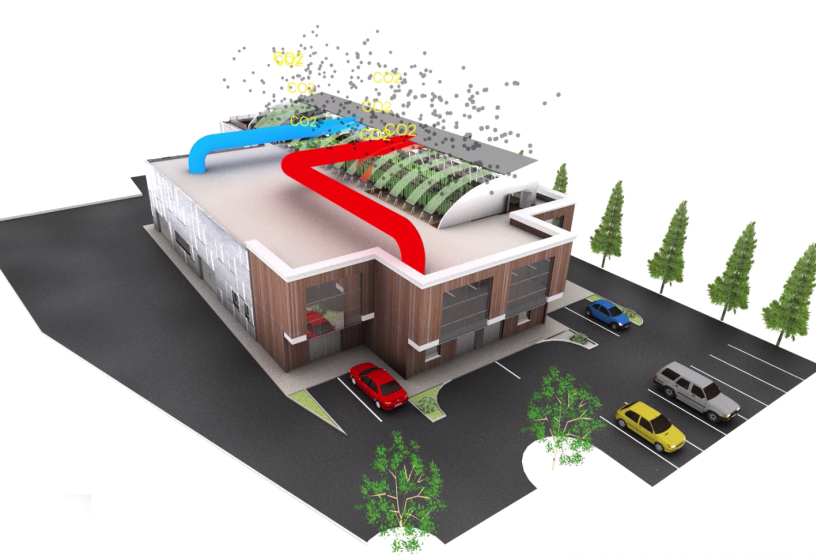Urban farming and buildings’ noble function

Tribune of Bruno Renders
The Third Industrial Revolution study brought to light new economic opportunities fostered by an affirmed willpower to drive a smarter, more sustainable and more inclusive diversification of the Luxembourg economy. The construction sector was time and again identified as a key sector for the creation of new industrial, energy and societal nodes.
"
In this innovative framework, the concept of a building’s noble functions, which we carry forward as an element of economic and societal valorisation of the construction sector, extends into new and necessary dimensions. More specifically, the classical functions of buildings need to be redrawn to transform them into full-fledged technological platforms capable of producing, stocking and redistributing energy, or even depolluting air or water.
They can now be greened and embrace vegetable cultivation functions by developing vegetal surfaces with high hygrometric potential. Urban greenhouses, especially those installed on rooftops, combine multiple noble functions. They can indeed produce high quality vegetables whilst producing energy to approach self-sufficiency, for example through the use of a new generation of photovoltaic solar panels made of Graetzel cells. This multifunctionality of urban greenhouses also provides filtering ecoservices: the CO2 emitted by the building will be metabolised by the plants which will in turn breathe out oxygen, thus contributing to improved air quality. Following this vision, we are carrying the European intersectoral project INTERREG NWE called GROOF – Greenhouses to Reduce CO2 on RooFs; it aims to reduce the CO2 emission levels of the building and agricultural sectors by combining energy sharing and local food production systems.
Bringing agriculture back to the city, closer to distribution facilities, and even more so, to consumption poles, allows not only the blooming of new agri-food business models, but also anticipation and support of emerging “consumer-actor” behaviours.
More than having mere potential in this field, Luxembourg has a strong rationale to strive in it. Indeed, despite some statistical divergences, it can be affirmed that the national fruit and vegetable production barely covers 2% of the country’s annual consumption.
It is thus remarkable to witness that the theme of Urban Farming embedded itself in the Third Industrial Revolution project and that the willingness of public authorities has been fully deployed. The Ministry for Sustainable Development and Infrastructures has commissioned us to undertake a strategic study on the potential of Urban Farming for Luxembourg.
This study will rely on the construction of the industrial demonstration greenhouse SOTA, which will be built on one of the IFSB’s buildings to identify the agricultural production potential as well as the obvious connections with the host buildings; it will contain a greenhouse laboratory.
Thanks to an ambitious strategy, Luxembourg will be a frontrunning country on the subject of urban agriculture, valorising the potential of a noble covered agricultural protection integrating novel functions to buildings and involving sectors that are key to the Third Industrial Revolution vision.
"

Bruno Renders
Board Member and CEO of the CDEC Group




